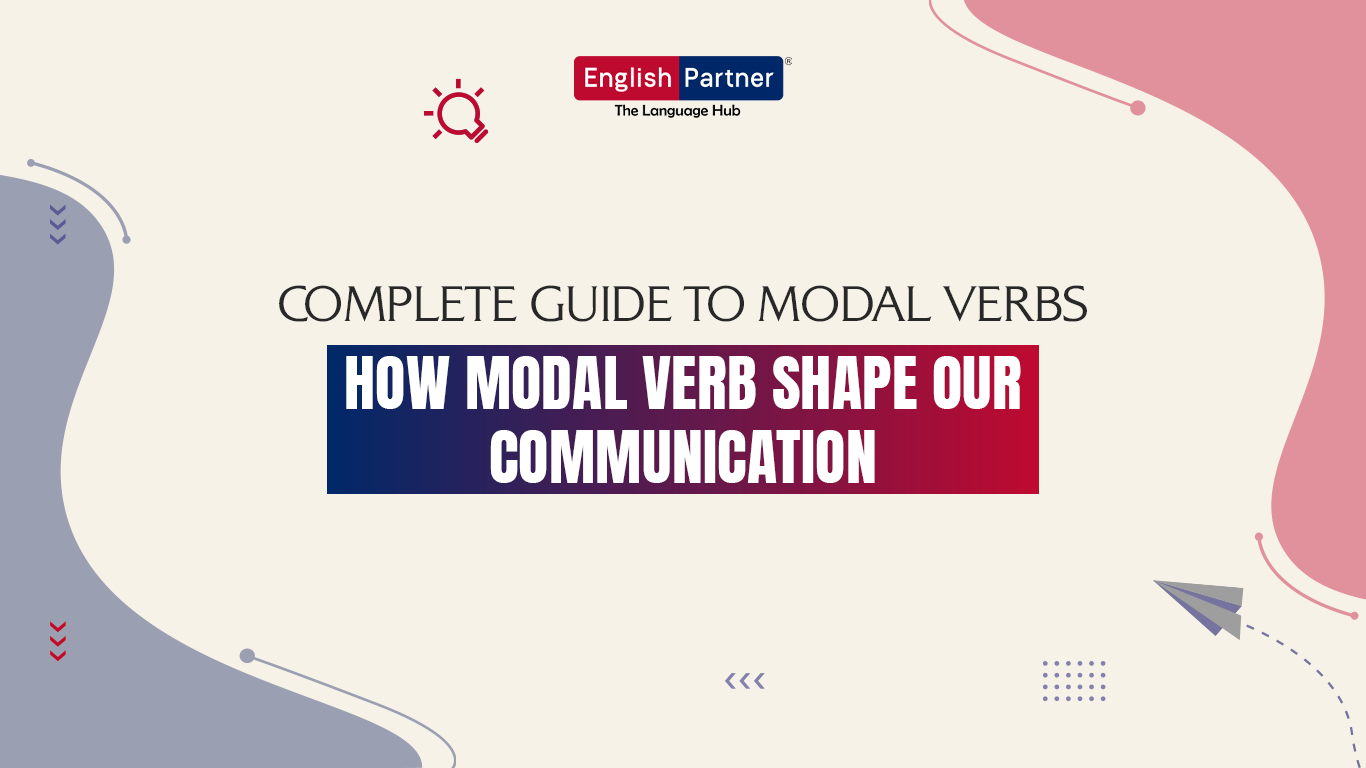
Could you please pass the salt? Or Can you please pass the salt?
It may rain? Or It might rain?
Can I come with you? Or May I come with You?
Do the set of sentences sound similar? Yet the speaker might be confused which sentence is grammatically correct. Modal verbs are perplexing yet simple to learn. We are here to help you learn modal verbs at ease.
Modal verbs are a type of auxiliary verb that work with the main verb to express possibility, intent, ability, obligation,permission,suggestion and more. It expresses the modality of the speaker’s attitude. They aren’t used independently but combined with the base form of the verb. Here is the list of Modal verbs
Let us understand Modal verb with examples:
Although they sound similar, there is a subtle difference.
You should study well for your exams-
Here the sentence implies a tone of suggestion or idea. For saying it is a good idea to study well.
You must study harder for your exam –
Here the sentence implies a tone of obligation or necessity. It says it is important you must study harder.
‘It is tricky to understand the usage of the verb but what if i tell you there is a solution to a problem is to know the functions of Modal verb.
Can: Present abilities
Example: I can run (This means I have the ability to run now.)
Could: Past abilities or hypothetical situation
Example: When I was younger I could run. (This means when you were younger I could run but not now.)
May/ Might
May: Strong possibility.
Example: It may rain later. (This indicates that there is a chance of rain.)
Might: weaker possibility than “may.”
Example: I might go to the party if I finish my work. (This means you are not sure if you will go to the party.)
Must \ Shall
Must: Indicate a strong obligation.
Example: You must wear a seatbelt in the car. (This means it is necessary to wear a seatbelt.)
Shall: Formal contexts, especially with “I” or “we.”
Example: We shall meet at noon. (This suggests a formal commitment to meet.)
Will /Should
Will: Intention about the future.
Example: I will call you tomorrow. (This means you plan to call tomorrow.)
Should: Recommendation or mild obligation.
Example: You should see a doctor if you feel sick. (This suggests that it is a good idea to see a doctor.)
Should /ought to
Should: Give advice or make a suggestion.
Example: You should try the new restaurant. (This is a suggestion based on personal opinion.)
Ought to: similar to “should” but more formal.
Example: You ought to study for the test. (This means you should study.)
Would \Used to
Would: Habitual action in the past or a preference.
Example: I would go for a walk every evening. (This indicates a past habit.)
I would like a cup of coffee. ( This indicate Preference)
Used to: Past habit or situation that no longer exists.
Example: I used to play football when I was a child. (This means you played football in the past, but not anymore.)
Expressing Ability
Indicating Possibility
Giving Permission
Expressing Obligation
Making Suggestions
Expressing Future Intentions
Expressing Preferences and Habits
1.Using Wrong Modal verb
Choosing the incorrect modal verb can change the meaning. For example, saying “You must try Chinese food” means it is necessary to try it, while “You might try Chinese food” suggests you have the option to try it without pressure.
2.Over Using ‘Must’
While “must” conveys strong necessity, using it too much can seem bossy. Consider using “should” for softer recommendations.
3.Negating Modal Verbs
Be careful with negation. Saying “I can’t eat” indicates a lack of ability or permission, while “I don’t have to eat” means there is no obligation to eat.
Try a simple activity to test your understanding with modal verbs
Answers:
Tips for Mastery:
At English Partner, we train you to be a successful personality with effective communication. Our comprehensive training will enable you to communicate effectively in any situation.
Modal verbs are auxiliary verbs that express modality, such as ability, permission, obligation, possibility, etc. They are followed by the base form of a verb.
Common modal verbs include can, could, may, might, must, should, will, would, shall.
Modal verbs do not change form for person, number, or tense. They are always followed by the base form of a verb.
Can” is used for present ability or permission, while “could” is used for past ability, possibility, or polite requests.
Both express possibility, but “may” is more certain or has higher possibility than “might.”
